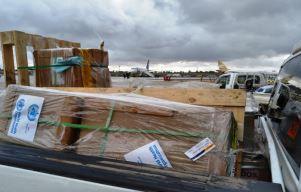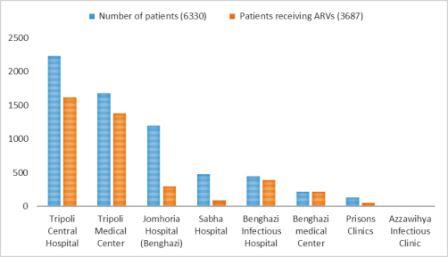 2 January 2017 -- The prevalence of HIV has been on the rise in Libya since the start of hostilities in 2011. A WHO assessment of the country’s health system showed a general collapse in services, including stalled drug procurement and distribution. Severe shortages of anti-retroviral (ARV) drugs threatens the lives of many HIV patients and has led to public protests demanding the Ministry of Health's immediate action to address the problem.
2 January 2017 -- The prevalence of HIV has been on the rise in Libya since the start of hostilities in 2011. A WHO assessment of the country’s health system showed a general collapse in services, including stalled drug procurement and distribution. Severe shortages of anti-retroviral (ARV) drugs threatens the lives of many HIV patients and has led to public protests demanding the Ministry of Health's immediate action to address the problem.
There were 6330 registered HIV patients in Libya in 2016. The same year also witnessed the death of 10 adolescents between the ages of 18 and 19 due to unavailability of ARV drugs. Patients are forced to cut down their drug regimens causing a resistance to first-line ARV drugs and leaving them with advanced stages of the disease and increasing mortality rates. With limited funds to address the issue, the Ministry requested WHO’s support in procuring and distributing the much needed ARV drugs.
On 22 December, WHO provided a shipment of ARV drugs for 450 patients for 3 months. The shipment was donated to Benghazi Center for Infectious Disease and Immunity. WHO is also working closely with the Ministry on developing and implementing surveillance and health system assessments, especially blood safety programmes. Together they are working on enabling HIV-related activities which were halted at the start of hostilities.
Cultural barriers and stigmatization have long been a hindrance to effective implementation of HIV prevention programmes. WHO’s main focus is planning, surveillance, and delivery of health care services to HIV patients through advocating for universal access to HIV treatment and care. Currently, an appeal in the amount of US$ 1.2 million has been launched by WHO to donors to ensure a regular supply of ARV drugs for 1 year.









